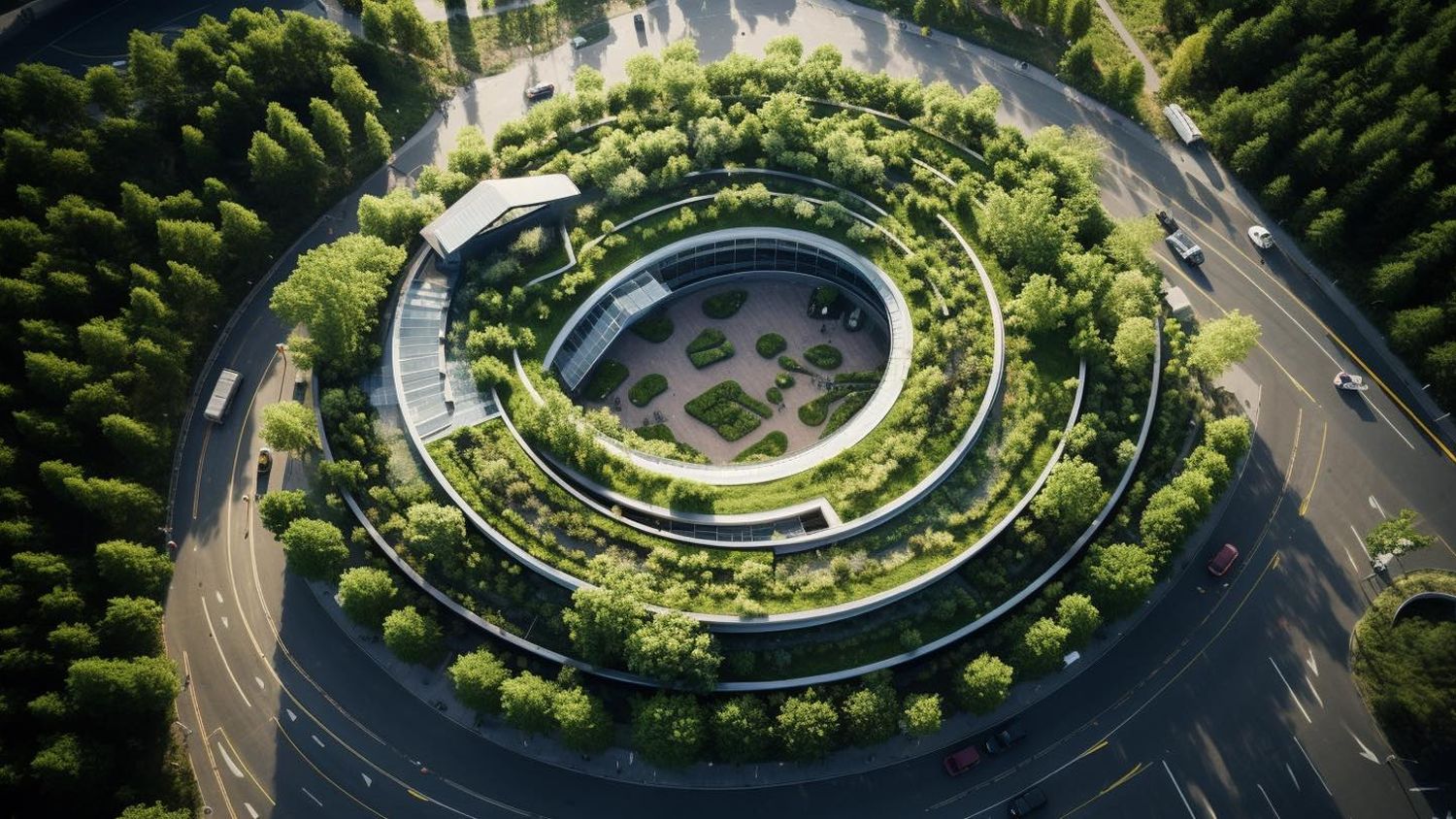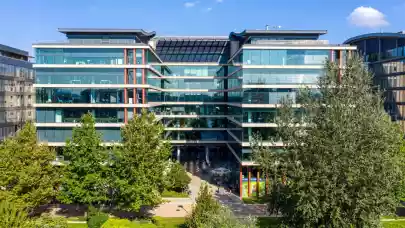
Aleksandra Mazzini, COO of Sierra Balmain Asset Management, talked to Property Forum about the current popularity of retail parks, the ongoing transformation of the retail sector and the point, where ESG and AI meet together.
The king has died, long live the king - can the Polish retail market already proclaim that retail parks have taken over the throne and traditional shopping malls have died?
If you are a frequent visitor to Arkadia, Galeria Mokotów in Warsaw or Posnania in Poznań, you would be surprised to hear that retail parks receive so much attention from the investors. From the Polish customers' perspective, well-located and properly managed shopping galleries remain absolutely favourite shopping and leisure destinations. Investors, however, have recently been more interested in retail parks. The market for shopping malls in large cities is already saturated and investments of this type are very capital-intensive. Developers have therefore turned to parks. They are cheaper and quicker to build and there is still a shortage of retail space in smaller cities. The operating and maintenance costs of such a facility are also correspondingly lower, which is an additional advantage for the investor.

Aleksandra Mazzini
Chief Operating Officer
Sierra Balmain
Aleksandra has extensive experience working in all sectors of the real estate market, including retail, office, industrial and residential. She has participated in over €1.4 billion worth of real estate transactions, including real estate sales and acquisitions as well as fundraising projects. She currently heads up the Sierra Balmain Warsaw office and her main responsibilities include Investment and New Business Development. She was previously based in London (incl. Goldman Sachs and Patrizia AG). Aleksandra holds an MPhil and a BA in Land Economy from the University of Cambridge. Since 2014, he has been a mentor at Cambridge REF Mentoring, supporting young, talented graduates in developing their career paths. More »
Not only are there no more new shopping galleries, but some of them are being demolished, such as Galeria Plaza in Kraków, or the soon-to-be Arkady Wrocławskie...
Yes, facilities in weaker locations or unsuitable formats will change their function or disappear to make way for other projects. Customers today want to shop close to home and in attractive locations. Many of the 'traditional' galleries in Poland are now more than 20 years old and need a thorough refresh of their offer - and with this come expenditures. Such 'revitalisations' are already being carried out across the country - the Warsaw Promenada, for example, has successfully completed one. A global trend in the retail sector is to develop the entertainment function - today we do not go to a shopping centre to do shopping, but also to experience something interesting, to spend time attractively. Shopping centre managers are continually expanding their cultural and entertainment offerings, adapting them for all age groups - children, young people, adults or seniors. Schools, medical operators, dental clinics and beauty salons are increasingly renting space in shopping centres. Retail parks cannot usually offer this. Of course, you will sometimes find smaller F&B outlets, cafés or patisseries in them, and food trucks in the car parks. However, retail parks remain, as a rule, places that are supposed to be close to customers and allow them to do a quick shopping. That is all there is to it.
Commercial property management anno domini 2024 - what is the biggest challenge for the manager in the current market conditions?
At present, the biggest problem is undoubtedly the high operating costs. Energy and raw material prices have become completely unpredictable in recent years. The times of contracting energy for three or more years are a thing of the past. The situation is similar with gas, which is why we are switching heating systems to the municipal grid where we can. For managers and tenants alike, higher labour costs, linked to increases in the minimum wage, are also a problem. As I mentioned, the adaptation of older properties to new market requirements also requires a considerable amount of money. Not only do they need to be attractive and fresh for the customer, but they also need to meet the new requirements and regulations for zero carbon, energy efficiency and a low carbon footprint. Resources have to be found for this too, and it is a major challenge for the entire retail market.
ESG is an acronym we've been conjugating in all sorts of ways in the industry lately. How does Sierra Balmain implement the principles of sustainability in its operations?
In addition to the aforementioned switch to other heating methods, we have a very strict policy when it comes to the energy we consume as facility managers. We monitor our consumption and encourage our tenants to do the same, as they are responsible for 70 per cent of the energy consumed by the shopping centre. We apply for BREEAM and LEED eco-certification for the facilities we manage. But what I find most unique about the shopping centres is the emphasis on the 'Social' component. We are very close to the local communities, constantly nurturing relationships with each other, because we are committed to simply being a responsible neighbour. We work extensively with local NGOs and organise events together to promote, for example, road safety, activating senior citizens or supporting the sick and disabled. We plant trees and urge people to sort their rubbish and recycle. We take care of neurosensitive people by reducing noise and light pollution in shopping centres with them in mind. The social element of the acronym ESG is very close to our hearts and I am of the opinion that, compared to offices or logistics, we have more to brag about here.
Another trending topic recently is AI. Do you already see possible applications of artificial intelligence in retail property management?
Yes, we are currently working on an IT solution in which artificial intelligence will 'read' lease contracts and extract everything we need from them. It can take up to a dozen hours for our administrators to analyse a lease contract and enter it into the system, as they have to pay attention to as many as 80 different parameters during the process. This requires a great deal of meticulousness, as proper invoicing and adequate communication with tenants later depend on this. In large shopping centres, there can be as many as 150 such agreements in force at any one time. The work involved is enormous, and we hope that in the future this solution will help us to streamline these processes considerably.
Another AI application we recently implemented was the use of the Dall-E graphic generator in marketing campaigns. Customers of our centres told us how they envisioned the shopping malls of the future, but the programme then generated appropriate graphics based on these descriptions. It turned out that our customers were very environmentally sensitive, and many of the graphics featured technologies using renewable energy sources, such as photovoltaic panels, hydroelectric power plants, energy generators from recycled waste, etc. Thus, these recently fashionable abbreviations such as ESG and AI came together.

In June you added the Carrefour Hypermarket in Kraków to your portfolio of managed sites. Do you plan to expand this collection further in the coming months (and can you already tell us about it)?
Carrefour Hypermarket in Kraków, is already the second project we are managing on behalf of our client, the German fund Leoff Capital. Our cooperation has gone very well so far and we are looking forward to developing it even further. In terms of further developing our portfolio, we are absolutely not slowing down - we already have a new property on our radar and we hope to advise on its commercialisation. I can't name it yet, as the terms are still being agreed upon, but hopefully, we'll be able to share the good news soon.



